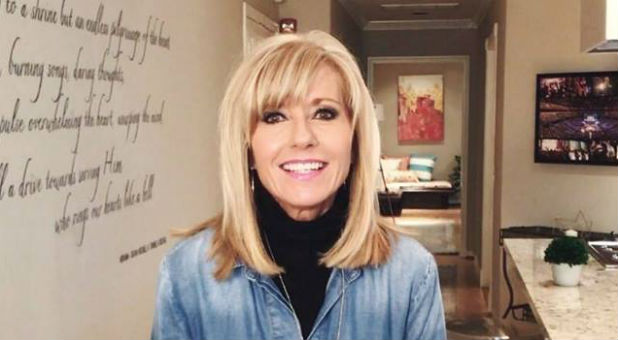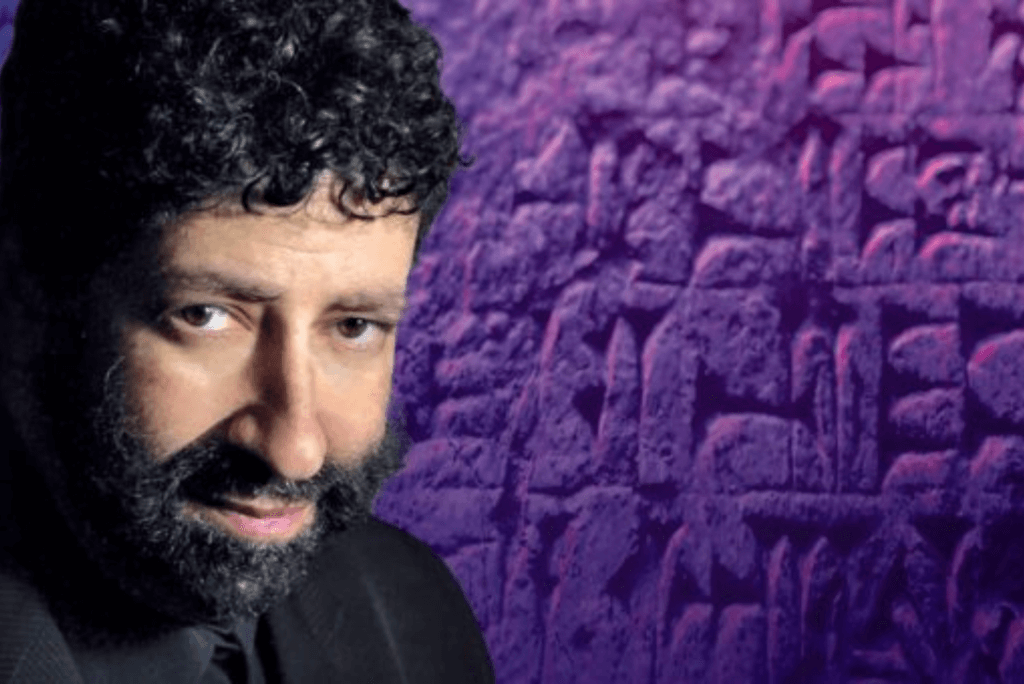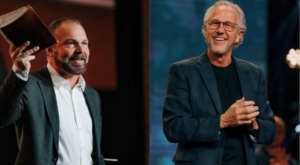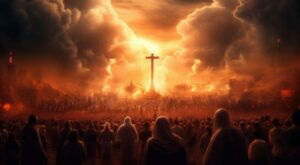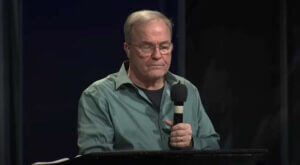“Me, too.”
These two words may flood social media newsfeeds today as women and men speak up about a time they were sexually harassed or assaulted.
The movement birthed out of the Harvey Weinstein scandal and prove horrifying statistics aren’t just numbers, but neighbors, friends and family. The movement started with Hollywood actress Alyssa Milano, who tweeted: “If you’ve been sexually harassed or assaulted write ‘me too’ as a reply to this tweet.”
According to Atlantic Training, about 1 in 3 women between the ages or 18-34 has been sexually harassed at work, and 81 percent of women have been verbally sexually harassed (jokes, name-calling and so on).
Lest you think the church is immune to the problems of the secular world, take a look at the reality of some of today’s prominent Christian leaders:
11.
— Beth Moore (@BethMooreLPM) Oct. 16, 2017
A well meaning mentor told me at 25 that people couldn’t handle hearing about sexual abuse and it would sink my ministry. It didn’t. #MeToo
— Beth Moore (@BethMooreLPM) Oct. 16, 2017
There’s no way on earth for me to move on to a new subject quickly after that barrage of #MeToo hashtags. So, I’d like to offer some #WeToo:
— Beth Moore (@BethMooreLPM) Oct, 16, 2017
#MeToo https://t.co/EWAduXa8ga
— Karen Swallow Prior (@KSPrior) Oct. 15, 2017
I wrote a memoir about being raped. So sorry it speaks to so many. #MeToo #RuinedMemoir https://t.co/vCmbCmMaPt pic.twitter.com/436cZctUrS
— rutheverhart (@rutheverhart) Oct. 16, 2017
Overcoming enormous internal barriers and arguments with myself to retweet this. Much easier to be impersonal, but, well, #metoo. Of course. https://t.co/dxBQW2M4Ey
— Elizabeth Oldfield (@TheosElizabeth) Oct.16, 2017
I’m not just a victim of sexual assault, I am a survivor. I choose to live and love and laugh.
In honor of #metoo, here is my story, just one of millions: https://t.co/oqmMF0brMA— Halee Gray Scott (@hgscott) Oct. 6, 2017
Keep thinking about #MeToo. Christian men in authority, I pray you are paying attention. It isn’t out there. It’s here. It’s in the church.
— Trillia Newbell (@trillianewbell) Oct. 16, 2017
The #MeToo hashtag is so sad to read and so brave. Thank you to those who’ve shared. Abundant redemption and peace to you…
— Tish Harrison Warren (@Tish_H_Warren) Oct. 16, 2017
Just a thought: You cannot claim to have a robust doctrine of sin, or the cross, while disbelieving the pervasiveness of #metoo.
— Sharon Hodde Miller (@SHoddeMiller) Oct. 16, 2017
I realized why I hadn’t been particularly struck by #MeToo.
It’s because I assume every woman I know has been hollered at, grabbed, insulted, objectified, or violated at some point.
It’s terrible that that’s the norm. And me too.
— kate shellnutt (@kateshellnutt) Oct. 16, 2017
A pedophile molested me when I was a little girl. It’s taken decades to heal. #MeToo
— Kay Warren (@KayWarren1) Oct. 16, 2017
If all women who’ve been sexually harassed or assaulted said “me too,” we might give people a sense of the magnitude of the problem. #MeToo
— shauna niequist (@sniequist) Oct. 16, 2017
“Boys are will be boys.”
“Locker room talk.”
“Dress modestly because men can’t control themselves.”#metooWomen are bearing the weight of a problem that men have perpetuated through partiarchical systems.
— Nate Pyle (@NatePyle79) Oct. 16, 2017
Hagar and her #MeToo hashtag. Human trafficked. Forced to have sex and bear a child for another woman. “You are the God who sees.”
— Cheryl Bridges Johns (@cb_johns) Oct. 16, 2017
Thankful that it didn’t, and that you still speak out about sexual assault and abuse, no matter what. https://t.co/BTgXvXNKeu
— Russell Moore (@drmoore) Oct. 16, 2017
Church Discipline
Restorative JusticeTwo things I love to discuss because … people are precious and God is just. #metoo#wetoo https://t.co/v2vG55XrSb
— Christina Edmondson (@DrCEdmondson) Oct. 16, 2017
#MeToo has me thinking about the Samaritan woman in John 4. Everyone preaches about her like she’s this notorious sinner, married 5 times…
— Jonathan Martin (@theboyonthebike) Oct. 16, 2017
Just a thought: You cannot claim to have a robust doctrine of sin, or the cross, while disbelieving the pervasiveness of #metoo.
— Sharon Hodde Miller (@SHoddeMiller) Oct. 16, 2017
#MeToo: I was raped by my pastor https://t.co/qgky4jGb57 From @hgscott
— Sarah Pulliam Bailey (@spulliam) Oct. 16, 2017
Evangelist and activist Alveda King told Charisma News she, too, has experienced sexual harassment.
“I remember applying for a job, I guess it was the ’70s or ’80s. Now I’ve been a state legislator, I’ve been a presidential appointee and I’ve encountered some sexism and other types of behavior through the years. But I remember I was applying for a job at an agency in Atlanta, Georgia, and the person interviewing me was a man, and the thing was well, ‘Why don’t you cross your legs and lean back, and we’ll talk.’ And I’m thinking … What does me crossing my legs and leaning back have to do with my ability to do my job? I think I probably said something like that and I was dismissed from the interview, but so I’ve encountered those kinds of things,” King says, a vocal abolitionist in the church today.
An article in Vice even claims that the church fosters this kind of harassment and abuse.
Author James Nolan writes:
In reality, “religion” is a generalized term. Better to specify what kind of religion—or, better still, what kind of culture—fosters it, and how there are varying degrees. Janet Heimlich, one of the world’s foremost authors on the topic and writer of the book Breaking Their Will: Shedding Light on Religious Child Maltreatment, says children are more vulnerable to abuse and neglect if they live in religious authoritarian cultures.
“There are three perfect-storm factors that identify a religious culture or community as authoritarian: One, the culture has a strict, social hierarchy. Two, the culture is fearful. And three, the culture is separatist,” she told the Huffington Post in 2011. “The more intense these three factors are—the more authoritarian the culture is – the more likely children will be harmed.” …
“Part of what has allowed abuses to continue unabated so long in very large religious institutions, such as the Methodist Church and others, is the power they have over congregants,” Heimlich told me. “They have the power to not only convince them they should not report abuses to outside authorities, but to tithe [give money]. These institutions also have power over politicians, who can be lobbied to keep statutes of limitations short, which, of course, benefits the institutions financially and keeps cases of abuse hidden from the public eye because survivors don’t get their day in court.”
With high-profile cases of Christians suffering sexual indiscretion, it can be difficult to disagree with Heimlich’s thoughts.
Evangelical author and professor Karen Swallow Prior summarizes the pervasiveness of the problem like this:
One expert estimates that between 1 percent and 5 percent of the population molest children. This means that if you know 100 adults, chances are good that at least one of them is a child molester. Maybe more. There is no evidence to suggest that the church population differs significantly in reflecting the general population.
Of course, accepting the commonness of the problem does not mean accepting the problem. It is with sexual abuse as it is with a dog’s jumping: it should be neither shocking nor tolerated.
Nor does opening our eyes to the problem mean we should establish a battery of fear-based rules and regulations for young people and for those that serve them. Rather, we must be fiercely communicative, open, vigilant and wise. We need to understand the fact that abusers, potential abusers and their victims are all around us. There is no need to adopt a culture of fear, suspecting anyone whose hand we shake at Sunday morning worship is a thief—but we don’t leave our wallets unattended in the robe room either.
So what’s the church to do?
King, whose father, Rev. A.D. King, was the brother of Martin Luther King Jr., has an idea.
“Once I was born again in 1983, I became a different person, and when I got those types of approaches, I would simply pray,” says King, whose new book, King Truths: 21 Keys to Unlocking Your Spiritual Potential, is due out early next year. “But they do need to be addressed, and women need to be silent no more in every area. With me, me being post-abortive, having abortions and everything, … I publicly talk about injuries and pains that God has delivered me from and healed me, but that’s the point that I want to make there that as the women are coming forth and saying, “Me, too” [they need to] be prepared to be healed, to forgive in the process. For those who are hearing these testimonies, [they need to] be prepared to help the healing process in love rather than to condemn.”
See an error in this article?
To contact us or to submit an article


